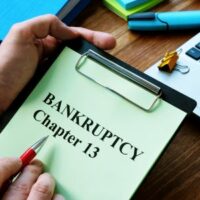What Will Your Chapter 13 Payment Be?

As many people know, Chapter 13 bankruptcy requires that you make payments to your creditors. But how much will those payments be? Would you even be able to afford a Chapter 13 repayment plan?
Every Case is Different
Of course, the answer to this question starts with the caveat that every case is different. Almost everything in bankruptcy can be challenged, questioned or modified, so there is no one definitive formula to tell you what your payment would be. There are general rules that you can follow to give you a rough estimate of what your payment in a Chapter 13 bankruptcy could be.
Secured Creditors
Assuming that you want to keep secured property, such as a home or a mortgage, the amount that you owe—that is, the amount in default, not the total amount of the loan—needs to be paid back through the life of the plan.
So, let’s assume that you’ve missed 3 mortgage payments, and with interest and fees, you owe $5,000. Over the five year plan (60 months), you would pay back $83 a month ($5,000 / 60). Outside the plan (directly to the mortgage lender) you would have to continue to make your normal mortgage payments. In some cases, you may be able to challenge late fees, or strip down mortgages to reduce this figure.
Priority Debts
Any debts that aren’t dischargeable and that are in arrears must be paid off. So if you owe back child support–a nondischargeable debt—you will have to pay these off during the life of the plan.
Unsecured Debts
This gets a little more complex—although the good news is that unlike with secured creditors, you don’t have to pay all of your unsecured debt off. Unsecured debt includes things like medical expenses, or credit cards—anything that is not secured by a lien.
You will pay the higher of your disposable income every month, or, if higher, the amount that your creditors would have received if you had filed for Chapter 7.
So, let’s say that you have $200 in disposable income every month. Over 60 months, you will pay a maximum of $200 x 60, or $12,000. Anything that is not paid off (that is, debt over $12,000) is discharged.
There is a formula to determine what your disposable income is. You may consider some expenses necessary, that the law considers to be unnecessary, and thus counted towards your disposable income. Your bankruptcy attorney can help you argue that you have less disposable income, especially if you have expenses that aren’t specifically determined by bankruptcy law to be necessary or unnecessary.
Alternatively, let’s say you have $15,000 in non-exempt property, that would have been taken from you, had you filed for Chapter 7 bankruptcy. In that case, you would have to pay $15,000 / 60 months, or $250 to your unsecured creditors.
These numbers are maximums—if you have less than this in unsecured debt, you will only pay what you owe.
Call the West Palm Beach bankruptcy lawyers at Kelley Kaplan & Eller at 561-264-6850 for help today in calculating what you would pay in a Chapter 13 bankruptcy.
Resource:
flsb.uscourts.gov/local-rule/chapter-13-payments



